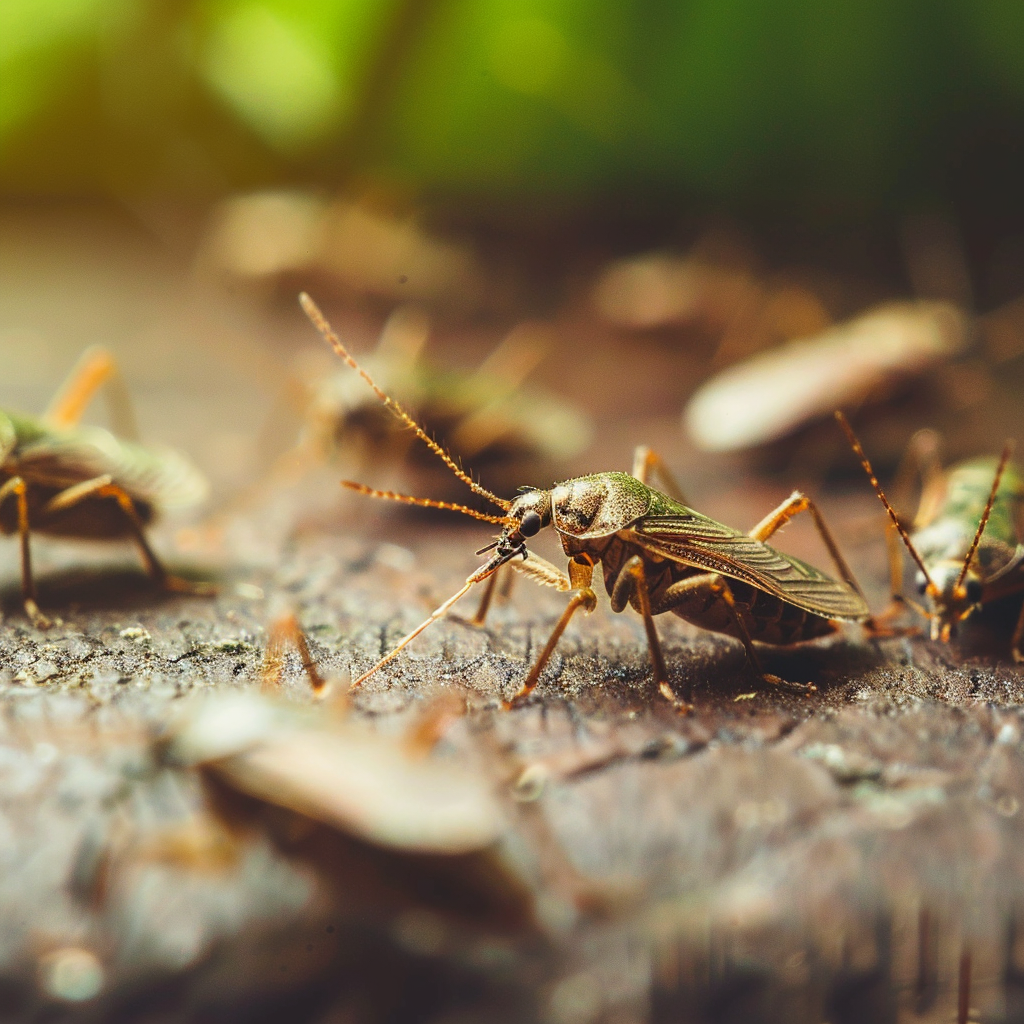Getting Rid of Bugs and Improving Your Health felt like you’re constantly battling those pesky bugs and can’t seem to stay healthy?

Getting rid of bugs and improving health is crucial for having a happy and useful life, but they can be hard to do with all the germs and bugs. That’s where this guide comes in! We’ll dive into everything you need to beat bugs and boost your well-being. So, please get a cup of tea and be comfy, and let’s get started!
Understanding Common Bugs
First, let’s talk about what we mean by “bugs.” When we say bugs, we’re talking about those annoying viruses, bacteria, and other microorganisms that can make you sick. Think colds, flu, stomach viruses—you get the idea.
These bugs can spread in all sorts of ways. You can catch them through the air when someone coughs or sneezes, touch contaminated surfaces, or directly contact someone infected. Yikes, right? But don’t worry; understanding how these bugs spread is the first step in preventing them.
Boosting Your Immune System
Now, let’s talk about your immune system. Think of it as your body’s army, always looking for invaders and ready to fight them off. Keeping your immune system in top shape is vital to staying healthy, and several ways exist.
Healthy Diet for Wellness
What you eat has a big effect on how well you feel your immune system functions. Certain foods are like super fuel for your body’s defenses:
- Vitamin C-rich foods: Berry fruits, broccoli, bell peppers, and citrus foods are full of vitamin C, which is essential for immune health.
- Probiotics: Found in yogurt, kefir, and fermented foods like sauerkraut, probiotics support gut health, which is closely linked to overall immunity.
- Leafy greens: Leafy greens like spinach, kale, and others are high in vitamins and antioxidants.
- Nuts and seeds provide essential vitamins like vitamin E and healthy fats and minerals.
Remember to Drink water! Getting enough water helps eliminate toxins and keeps cells and organs functioning properly. Aim for at least eight glasses a day.
Regular Exercise
Getting regular exercise is another essential part of keeping your immune system strong. Exercise helps improve the movement of defense cells, which makes it easier for your body to find and fight off infections. Here are some significant types of exercises:
- Aerobic exercises: Walking, running, and cycling stimulate your heart and improve cardiovascular health.
- Strength training: Lifting weights or resistance bands helps build muscle and maintain a healthy weight.
- Flexibility exercises: Yoga and stretching improve flexibility and reduce stress, which can boost immune function.
The key is to stay consistent. Try to do some kind of mild exercise for at least 30 minutes on most days of the week.
Adequate Sleep
Never underestimate the power of a good night’s sleep. For your body to heal and grow back, you need to sleep. If you don’t get enough sleep, your immune system may weaken, leaving you more likely to get sick. Here are some ways to get a better night’s sleep:
- Stick to a schedule: Go to bed and wake up simultaneously every day, even on weekends.
- Create a restful environment: Make your bedroom a sleep sanctuary. Keep it calm, dark, and quiet.
- Limit screen time: The blue light from computers It can be hard to fall asleep when you’re on your phone. At least an hour before bed, try not to look at a screen.
Stress Management
Stress can seriously mess with your immune system. Your body makes cortisol when stressed, which can suppress immune function if levels remain high for long periods. Here are some effective stress management techniques:
- Meditation and mindfulness: These practices help you stay present and reduce anxiety.
- Yoga: Combines physical movement with breath control, promoting relaxation and flexibility.
- Hobbies: Doing things you enjoy can help clear your mind. And improve your mood.
- Work-life balance: Ensure you’re not overworking yourself and make time for relaxation and fun.
Hygiene and Preventive Measures
Keeping clean is very important for stopping the spread of bugs. Here are some tips to keep in mind:
- Handwashing: Do this for at least 20 seconds: wash your hands with soap and water eating, after using the bathroom, and in public places.
- Use hand sanitizer: When soap and water aren’t available, use a hand sanitizer with at least 60% alcohol.
- Avoid touching your face: Your eyes, nose, and mouth are entry points for germs.
- Disinfect surfaces: Clean and disinfect areas that people touch often, like doorknobs, light switches, and phones.
Natural Remedies and Supplements
Sometimes, nature provides the best medicine. Several natural remedies and supplements can help boost your immune system and prevent illness:
- Echinacea: It is known to boost the immune system and can help avoid colds and shorten their duration.
- Elderberry: This berry has been shown to lessen the harshness and length of colds and flu.
- Vitamin D is essential for immune function, especially in winter when sunlight is limited.
- Zinc: Is very important for immune response and can help reduce the duration of colds.
Always consult a healthcare provider before starting any new supplement to ensure safety.
Staying Updated with Vaccinations
Getting rid of bugs and improving health a vaccine is an important part of preventive health care. They prepare your immune system to fight off specific infections. Here are some key points:
- Importance of Vaccinations: They protect you from severe and potentially deadly diseases.
- Common Vaccines: Annual flu shot, pneumococcal vaccine, and others as your healthcare provider recommends.
- Addressing Myths: Vaccines are safe and undergo rigorous testing before approval. They do not cause the diseases they protect against.
When to Seek Medical Advice
Even with the best preventive measures, there might be times when you need to seek medical advice. Here are some signs that you should consult a healthcare provider:
- High fever: Persistent or very high fever requires medical attention.
- Severe symptoms: Difficulty breathing, chest pain, or severe headache should be evaluated by a doctor.
- Prolonged illness: If you don’t get better after a few days or your symptoms worsen, it’s time to see a healthcare professional.
Conclusion
Getting rid of bugs and improving health and there you have it—your ultimate guide to beating bugs and boosting wellness! Understanding common bugs and strengthening Keep your immune system strong by eating well, working out regularly, and getting enough sleep can cut your risk of getting sick by a large amount stress management, practicing good hygiene, and staying up-to-date with vaccinations. Remember, maintaining health is an ongoing journey; these strategies will help you stay on track. Here’s to a healthier, bug-free life!
Contact healthcare professionals or wellness coaches if you need personalized advice or support. Stay healthy, and keep those bugs at bay!






